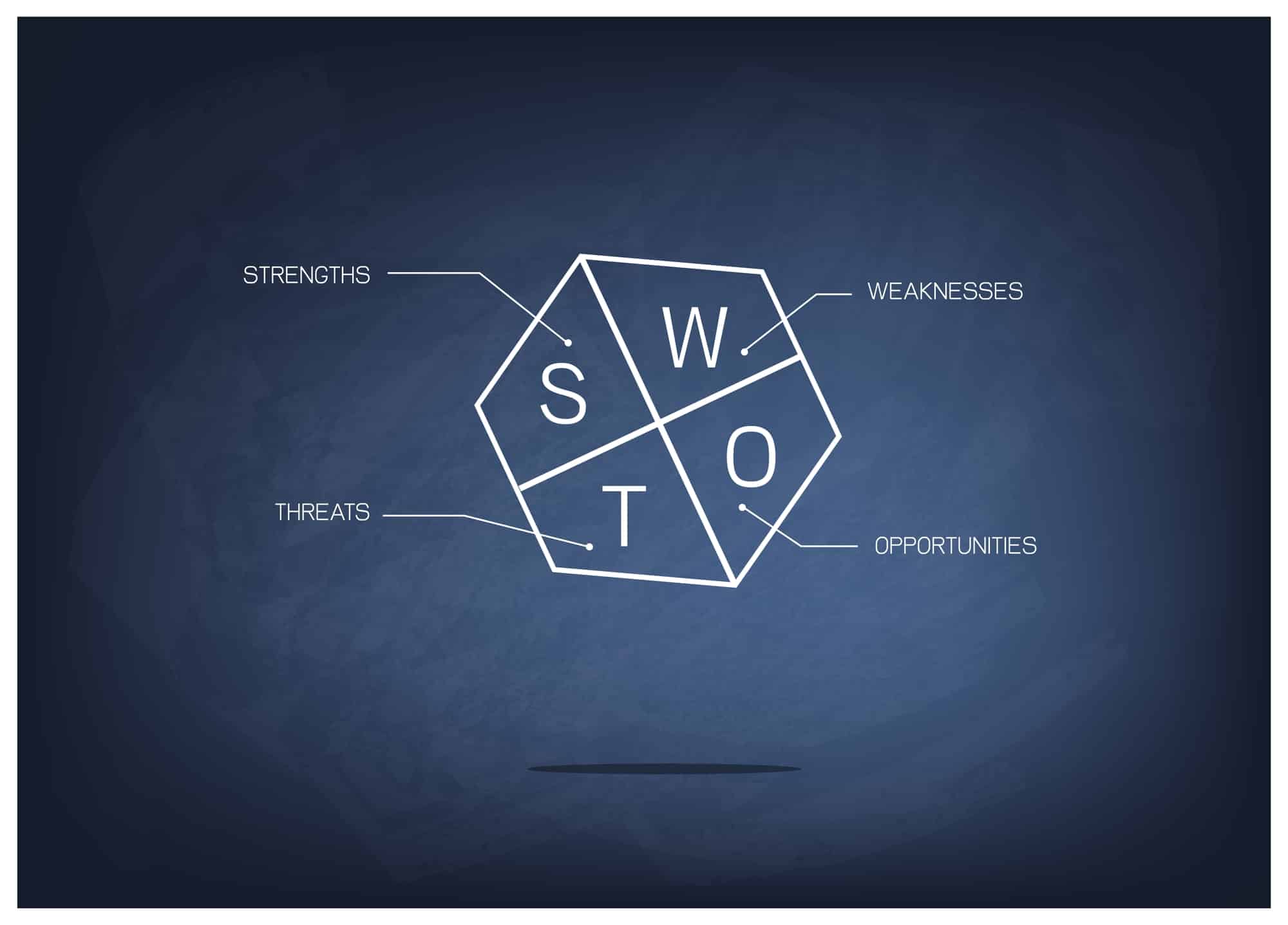You must have seen people using SWOT analysis in organizations and personal life. Have you guys ever wondered why businesses and individuals give so much importance to SWOT analysis? Why is SWOT analysis important for so many professionals?
SWOT analysis has an edge over all the other tools since it provides a complete picture of what internal and external factors impact a business, industry, or individual.
People prefer to use SWOT analysis because it is a very simple tool to use. There are no complexities associated with SWOT analysis. Yet, it gives a detailed summary of an organization's strengths, weaknesses, opportunities, and threats.
The findings of SWOT analysis help organizations to make well-informed decisions. There are some of the reasons why businesses and individuals prefer to use SWOT analysis.
In today's article, we will discuss several reasons to analyze Why Is SWOT Analysis Important? This article will give an overview of SWOT analysis to all those people who don't know much about SWOT analysis.
SWOT analysis is called SWOT because it is an acronym used for strengths, opportunities, weaknesses, and threats. Businesses use SWOT analysis to become aware of their strengths and weaknesses. Moreover, businesses look forward to opportunities and threats highlighted by SWOT analysis.
For example, the SWOT analysis of Apple reveals that Apple lacks in digital advertising and marketing. Apple can take this finding and work hard to overcome this weakness to increase its sales. This is how the findings of SWOT analysis help businesses improve.
Now that we have discussed the use of SWOT analysis let's proceed further and discuss why SWOT analysis is important in detail.

Strategic Decision Making
Decisions of an organization decide its fate. If an organization makes well-informed decisions, it will grow over time. On the contrary, if an organization doesn't make well-evaluated decisions, it will struggle in the future.
Here, a question arises: how can organizations make well-informed decisions? The answer to this question is simple: by conducting a SWOT analysis. And that's the first reason why SWOT analysis is important.
SWOT analysis helps organizations to make decisions by identifying their strengths, weaknesses, opportunities, and threats.
The first section of the SWOT analysis identifies the strengths of an organization.
For example, the SWOT analysis of Chick-fil-A highlights that one of the strengths of the fast-food chain is its customer service. Now that the SWOT analysis has highlighted this strength of Chick-fil-A, the fast-food chain will try to retain the quality of its customer service to gain a competitive edge.
Other than that, the weaknesses identified by SWOT analysis help organizations make decisions to overcome those weaknesses. For example, the SWOT analysis of Coca-Cola highlights that the soft drink damages health. This is its weakness.
Coca-Cola overcame this weakness identified by the SWOT analysis by introducing sugar-free Coca-Cola. Furthermore, SWOT analysis also highlights the opportunities for growth present for organizations.
For example, a SWOT analysis of Costa Coffee highlights that the coffee brand has an opportunity to increase its customer base by expanding its operations in other countries. Costa Coffee can spread its operations to other countries and attain growth by implementing the SWOT analysis findings.
Furthermore, SWOT analysis also highlights threats to organizations from the external environment. The SWOT analysis of Dunkin' Donuts highlights that high competition in the market threatens the Donut brand. Dunkin' Donuts must constantly evolve to overcome this threat and gain a competitive edge.
The threats section of the SWOT analysis helps organizations identify potential threats. Organizations then take measures to mitigate those risks.

Business Development And Growth
Every business wants to attain growth and spread its operations to maximize its profits. And that's the second reason why SWOT analysis is important. SWOT analysis helps organizations grow by identifying the growth opportunities for a business.
It highlights the upcoming trends and identifies the gaps an organization can fill and increase its market share. Moreover, SWOT analysis highlights the untapped markets and technologies a business can use to increase its customer base.
Once the SWOT analysis highlights the growth opportunities, businesses develop strategies to avail of these opportunities.
For example, if a SWOT analysis of business A highlights that the business can increase its market share by increasing its online presence, it will form a strategy and arrange resources to increase its online presence to capitalize on the opportunity.
Moreover, the strengths section of the SWOT analysis also helps businesses grow. A SWOT analysis highlights the unique internal strengths of a business. The business can use more resources on the identified strengths to gain a competitive advantage.
Besides that, SWOT analysis also highlights the internal weaknesses of an organization. These weaknesses stop organizations from achieving their true potential. Businesses use the findings of the SWOT analysis to overcome these weaknesses.
Businesses develop strategies and find ways to overcome the weaknesses highlighted in the SWOT analysis. For example, if a SWOT analysis of a business highlights that the business has limited reach, the business can develop strategies to increase its reach. This will help the business to grow.
Furthermore, the SWOT analysis also helps businesses to grow by highlighting their threats. The SWOT analysis identifies the threats present for an organization from the external environment.
Businesses try to mitigate the highlighted threats by forming a strategy. As a result, these threats are mitigated, and the business grows.
Competitive Advantage
Businesses try hard to attain a competitive advantage to dominate the market. SWOT analysis provides an opportunity for businesses to gain a competitive advantage since it highlights the strengths, weaknesses, opportunities, and threats present for a business.
That's the third reason why SWOT analysis is important.
The strengths of a business highlighted in the SWOT analysis help the business to gain a competitive advantage. Businesses polish their strengths further, which are highlighted in the SWOT analysis.
For example, suppose the SWOT analysis of a business highlights that having advanced technology is a strength of a business. In that case, the business will further invest in technology to gain a comparative edge in the market.
Moreover, SWOT analysis helps businesses realize how they differ from their competitors. Businesses focus on their unique selling points (USPs) and polish them to gain a competitive advantage.
Focusing on their USPs helps businesses attract a specific type of customer. As a result, the business can capture a specific market segment.
Other than that, SWOT analysis helps businesses overcome the weaknesses that hinder their growth. Every business has some weaknesses that act as a barrier to its growth.
The weaknesses section in the SWOT analysis highlights the weaknesses of a business. The findings of the SWOT analysis help businesses to form strategies to overcome the weaknesses.
By addressing the weaknesses mentioned in the SWOT analysis, businesses enhance their resilience in the market. For example, suppose the SWOT analysis identifies that customer service is a weakness of a business. In that case, the business can convert this weakness into its strength by investing in customer service.
Moreover, the SWOT analysis's weaknesses section helps businesses efficiently allocate resources toward the weaknesses.
SWOT analysis also helps businesses in identifying potential threats. Identifying these threats helps businesses form strategies to mitigate the risks associated with these threats.
For example, if a SWOT analysis highlights that there is a threat of a pandemic in the future.
A business can mitigate the risks linked with the pandemic by forming a strategy to shift its operations online. In this way, businesses can gain a competitive advantage by forming strategies in advance to avoid external threats.
Resource Allocation And Efficiency
Businesses look forward to allocating their resources efficiently to maximize their profits. SWOT analysis helps businesses in allocating their efficiently. Businesses allocate their resources to the strengths highlighted by the SWOT analysis.
And that's the fourth reason why SWOT analysis is important.
Allocating resources to the strengths can provide a competitive advantage to a business. The business can increase its efficiency by re-directing its resources towards its strengths.
For example, a business with a large customer base would be recognized as a strength. The business can further allocate its resources to increase its customer base. In this way, SWOT analysis can help businesses in allocating resources efficiently.
Moreover, SWOT analysis helps businesses efficiently utilize their resources by identifying weaknesses. Businesses possess several weaknesses. However, some weaknesses cause inefficient resource allocation.
For example, if a business possesses obsolete machines that lack efficiency, the business's resources would be wasted. The SWOT analysis of the business will identify obsolete machines as a company's weakness.
Once the obsolete machines are identified as a weakness, the business will overcome this weakness by replacing the old machines with new, more efficient ones. As a result, resource wastage will be reduced.
Additionally, SWOT analysis helps identify the opportunities ahead of the business. Due to this, businesses can allocate their resources to opportunities that will allow resource maximization.
For example, if a SWOT analysis highlights that a business has an opportunity to expand its operations online to capture more market share. Since the SWOT analysis has already highlighted the opportunity, businesses can avail this opportunity. By doing so, the resource will be maximized.
Furthermore, SWOT analysis prevents resources from depleting by identifying a business's threats. Businesses take measures to avoid the impact of threats identified by the SWOT analysis. As a result, the depletion of resources is prevented.

Adaptability And Flexibility
Any business requires adaptability and flexibility to grow. If a business cannot meet the sudden demand of customers or adapt to sudden market trends, it can't go far. SWOT analysis is one of the tools that help organizations adapt to changing environments, which is also why SWOT analysis is important.
Both the external and internal environments of a business are constantly evolving. Regular SWOT analysis of an organization makes it aware of its strengths and weaknesses.
Moreover, frequent SWOT analysis helps organizations identify the opportunities and threats present for them.
SWOT analysis allows businesses to form and change strategies as per the external and internal environment. Moreover, SWOT analysis makes businesses flexible.
SWOT analysis allows businesses to take prompt action to seize new opportunities highlighted. Other than that, a business can take measures in advance since SWOT analysis highlights the potential threats present.
Early detection of threats and opportunities through SWOT analysis helps businesses to adapt more efficiently and effectively.
Long-Term Sustainability
SWOT analysis ensures the long-term sustainability of a business by highlighting the internal and external factors that affect the operations of a business. Businesses use the SWOT analysis findings to formulate strategies that ensure long-term business sustainability, making SWOT analysis so important.
The SWOT analysis makes it easier for businesses to form long-term goals by highlighting the strengths, weaknesses, opportunities, and threats faced by businesses in detail.
Businesses use SWOT analysis regularly to see how the internal and external environment is evolving. Conducting regular SWOT analysis helps businesses revisit the strategies they have made.
The findings of the SWOT analysis push businesses to innovate. For example, if the SWOT analysis of a business highlights that a business lacks in technology, the business would instantly purchase new technology to overcome this weakness.
Businesses can achieve long-term sustainability only if they face threats and mitigate their impact. SWOT analysis highlights the potential threats to the business. This enables businesses to form strategies to mitigate the risks associated with threats, leading to long-term sustainability.

Why Is SWOT Analysis Important? Final Word
SWOT analysis is a tool businesses use to highlight the internal and external factors that impact their operations. A SWOT analysis identifies the strengths and weaknesses of an organization.
Moreover, it also highlights the opportunities present for an organization and the threats that an organization faces. We know that businesses often conduct SWOT analysis. However, many of us don't know why SWOT analysis is important and the benefits of conducting a SWOT analysis.
In this article, we discussed how SWOT analysis helps businesses in making strategic decisions. Moreover, we also discussed how SWOT analysis helps in business development and achieving growth.
Besides that, SWOT analysis also helps organizations in attaining a competitive advantage and allocate resources efficiently. Another advantage of using SWOT analysis is that it makes an organization more adaptive and flexible.
Moreover, many organisations also use SWOT analysis since it helps them achieve long-term sustainability. After reading this article, we hope you know what a SWOT analysis is and why SWOT analysis is so important. If you want to know more about SWOT analysis, take a look at some SWOT examples.










